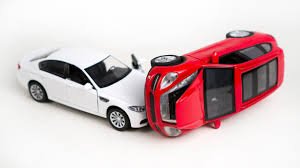WHAT YOU SHOULD KNOW BEFORE BUYING CAR INSURANCE
Published by Gbaf News
Posted on May 4, 2016
4 min readLast updated: January 22, 2026

Published by Gbaf News
Posted on May 4, 2016
4 min readLast updated: January 22, 2026

There’s really no escaping auto insurance given our contemporary lifestyles. Every month you need to pay the insurance company a substantial amount, even though like most folks you’ve not made a claim for many years. However, your financial prudence will definitely pay off if you do happen to be involved in an auto accident. Today, due to all all-pervasive nature of the Internet it has become easier than before to buy auto insurance because now you can compare and contrast far more easily in the comfort of your home. While insurance companies are now under more pressure to give you the best rates, you also need to be very clear as to what your state laws require regarding the extent of coverage.

Andrew Thompson
Factors Influencing Insurance Rates
The rates of insurance policies are derived from statistics drawn from a large sample over a long time. The rates can and do differ across individuals based on various factors such as their age, where they live, the driving experience they have, the model of the car, safety and anti-theft features installed, etc. Your driving record is also a very important consideration in fixing the applicable insurance premium so make sure you obtain a copy and verify that it is accurate and up to date, as errors can drive your premium up.
Extent of Coverage Required
Every state specifies the minimum coverage that car owners need to have, but you need to decide for yourself what cover you really require over and above the legal limits. Basically, you should establish a fine balance between overpaying and inadequate coverage. A general guideline applicable for bodily injury is $100,000 per person, while on a per accident basis, it is $300,000. Additionally, for property damage, it is $100,000. These amounts are what your car insurance company will pay to third parties when you are involved in an accident. If you are not otherwise covered, you should consider the same bodily injury cover to cover your medical costs when you are injured by someone who is uninsured.
Other Coverage Types
You can obtain supplemental coverage at additional cost for specific coverage such as collision and comprehensive. Collision coverage will cover your own car for necessary repairs when you yourself are the cause of the accident while comprehensive cover will pay out in case your car suffers harms from causes other than accidents such as weather, theft or vandalism. You can even get coverage for rental reimbursement that will pay for a rental vehicle for the time your own car is under repair. If you do not want to pay for towing in case your car needs roadside assistance, then you can buy a roadside assistance policy. However, find out if this is a facility already being offered by your dealer when the car is under warranty or if you an auto club member.
Getting the Best Rates
When asking for a quote from an insurance company, it is highly recommended that you specifically ask the company to give you discounts based on your driving record as drivers who have not been involved in accidents or made any insurance claims or even not received traffic tickets for a few years are usually eligible for hefty discounts. Many insurance companies reward loyal customers who have multiple policies and / or are renewing past policies with them. If you have passed a safe driving course or if your car is fitted with safety or anti-theft devices, you will invariably be eligible for better rates. Young drivers, still in school, can get discounts for maintaining good grades. You can also make your rates dip by offering to pay a higher deductible.
Author bio: Andrew Thompson is a senior sales manager is a leading car insurance broking firm that represents a number of prominent insurance companies. Andrew writes extensively on auto insurance issues in the online media.
Explore more articles in the Top Stories category











